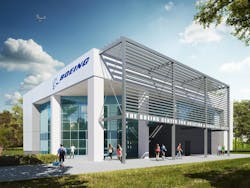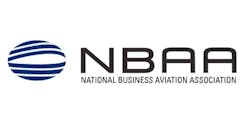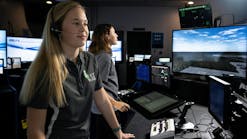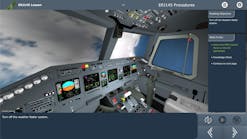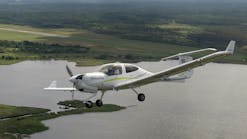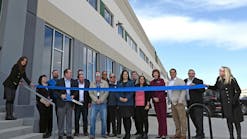Boeing, Embry-Riddle Partner on $5.1 Million Center to Advance Aviation Safety
The Boeing Company has provided Embry-Riddle Aeronautical University with a $5.1 million donation for a research center that will drive safety improvements throughout the industry.
The newly named Boeing Center for Aviation and Aerospace Safety at Embry-Riddle, charged with advancing the safety of all who fly, will conduct independent research aimed at mitigating known and emerging operational safety risks. As examples, research may focus on topics such as data analytics to predict and potentially prevent safety incidents; runway safety; safety management systems; risk management; the safe integration of new entrants into the global airspace system; and more.
“By its nature, aviation is self-correcting in that we must continuously apply lessons learned to keep all who fly as safe as possible,” said Embry-Riddle President P. Barry Butler, Ph.D. “The Boeing Center for Aviation and Aerospace Safety at Embry-Riddle will provide an infrastructure for systematically investigating and reducing safety risks, from technological challenges to human factors. We are grateful to Boeing for supporting independent research in this field.”
“We continuously work to move the needle in strengthening the safety of the air transportation system,” said Michael Delaney, Boeing chief aerospace safety officer. “We’re pleased to be a part of the Boeing Center for Aviation and Aerospace Safety at Embry-Riddle, because the best solutions to the important challenges our industry faces come to life when we work together with our partners.”
The Boeing Center for Aviation and Aerospace Safety at Embry-Riddle will be housed in a 13,000-square-foot building on Embry-Riddle’s Daytona Beach, Florida, campus that is currently under renovation. This building, which is expected to open in January 2024, will feature offices and lab space as well as a dedicated classroom for safety-related professional education courses.
The center will foster collaboration across academia, industry and government entities, establishing research partnerships — involving graduate and undergraduate students who will gain real-world exposure to the industry through hands-on research projects — that will benefit all who depend on air transportation.
Findings of the Boeing Center for Aviation and Aerospace Safety at Embry-Riddle will be shared with the broader aviation community to advance knowledge and practices across the industry. Research projects will also foster thought leadership and encourage innovative ways to approach aviation safety challenges. Work conducted by the center will remain autonomous from, and independent of Boeing.
The center, headed by the Honorable Robert L. Sumwalt, former chairman of the National Transportation Safety Board, will also focus on attracting and retaining high-quality faculty and students from diverse and underrepresented populations who are interested in careers in aviation safety and related fields.
“By forging partnerships with industry and government, the center will leverage Embry-Riddle's faculty of more than 1,300 aviation and aerospace experts to address urgent safety challenges,” said Sumwalt, the center’s executive director. Further, Embry-Riddle's graduate and undergraduate students will contribute expertise in related fields such as engineering, human factors, aviation safety, data science and risk management.
Joining Sumwalt in leading the center is Kristy Kiernan, Ph.D. Kiernan also serves as program coordinator for the Master of Science in Aviation Safety at Embry-Riddle’s Worldwide Campus and as an associate professor in the Department of Aeronautics, Graduate Studies. A former Coast Guard aviator, she was an aviation safety officer, crew resource management instructor and chief pilot for technical issues in the Falcon 20. Her current research investigates the positive contribution of human performance to aviation safety and the safety aspects of integrating un-crewed systems into the national airspace. A pilot of both crewed and un-crewed aircraft, Kiernan holds a B.S. in neuroscience from Brown University as well as a Ph.D. in Aviation from Embry-Riddle.
An industry advisory board comprised of high-level professionals representing all sectors of aviation, including a Boeing representative, has been appointed and tasked with directing, reviewing and ensuring the relevance and integrity of the center’s four areas of activity: research, education, training and consulting. In addition, the board provides guidance on key areas of focus and directs the development of academic courseware on topics such as the ethics of safety and the building blocks of an effective safety culture, among others.
The debut of the Boeing Center for Aviation and Aerospace Safety at Embry-Riddle is the latest development in Boeing’s partnership with the university. Other examples include Embry-Riddle’s participation in Boeing’s Engineering Accelerated Hiring Initiative as well as the Boeing Career Mentoring Program; the Boeing Scholars program; a Boeing program to serve ROTC graduates; and internships through an Engineering Development Program.
